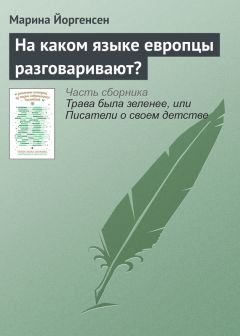Kingsley Amis - Lucky Jim
Dixon, having long ago summed up Mrs Welch on his own account, allowed Welch to go on about her political views, her attitude towards 'so-called freedom in education', her advocacy of retributive punishment, her fondness for reading what Englishwomen wrote about how Parisians thought and felt. His own thoughts and feelings, all the time they were getting into the car and driving off, were busy on the subject of Margaret. He didn't know how he was to face meeting her; this reflection, which had been occupying him for most of the day at the Public Library, had become much more urgent now that he'd have to face meeting her very shortly. He'd also presumably have to face meeting Bertrand and Mrs Welch, but these encounters must in comparison be much less appalling. There'd be Christine as well; he didn't really want to see her either, not because of anything to do with her personally, but because she formed a portion of his worry about Margaret. He'd have to do something to show Margaret she wasn't entirely alone; he wouldn't, he mustn't let himself, get back on the old footing with her, but he must somehow reassure her of his continued support. How was he going to do that?
In search of some distraction, he looked out of the window at his left just as Welch slowed to a walking pace at a road junction. Standing on the pavement was a big fat man whom Dixon recognized as his barber. Dixon felt a deep respect for this man because of his impressive exterior, his rumbling bass voice, and his unsurpassable stock of information about the Royal Family. At that moment two rather pretty girls stopped at a pillar-box a few yards away. The barber, his hands clasped behind his back, turned and stared at them. An unmistakable look of furtive lust came over his face; then, like a courtly shopwalker, he moved slowly towards the two girls. Welch now accelerated again and Dixon, a good deal shaken, hurriedly switched his attention to the other side of the road, where a cricket match was being played and the bowler was just running up to bowl. The batsman, another big fat man, swiped at the ball, missed it, and was violently hit by it in the stomach. Dixon had time to see him double up and the wicket-keeper begin to run forward before a tall hedge hid the scene.
Uncertain whether this pair of vignettes was designed to illustrate the swiftness of divine retribution or its tendency to mistake its target, Dixon was quite sure that he felt in some way overwhelmed, so much so that he listened to what Welch was saying. He was saying 'Most impressive', and for a second Dixon felt like picking up the spanner he could see in the dashboard pocket and hitting him on the back of the neck with it. He knew the sort of thing Welch found impressive.
The rest of the journey passed uneventfully. Welch's driving seemed to have improved slightly; at any rate, the only death Dixon felt himself threatened by was death from exposure to boredom. Even this danger receded for a couple of minutes while Welch disclosed a few facts about the recent history of the effeminate writing Michel, a character always waiting in the wings of Dixon's life but apparently destined never to enter its stage. This Michel, as indefatigably Gallic as his mother, had been cooking for himself in his small London flat, and had in the last few days made himself ill by stuffing himself with filthy foreign food of his own preparation, in particular, Dixon gathered, spaghetti and dishes cooked in olive oil. This seemed fit punishment for one so devoted to coagulated flour-and-water and peasants' butter-substitute, washed down, no doubt, by 'real' black coffee of high viscosity. Anyway, Michel was evidently coming down in a day or two to recuperate on his parents' English fare. Dixon turned his head to laugh out of the window at this last stroke. This time he experienced nothing worse than a small rage at the thought of a little louse like that having a flat in London. Why hadn't he himself had parents whose money so far exceeded their sense as to install their son in London? The very thought of it was a torment. If he'd had that chance, things would be very different for him now. For a moment he thought he couldn't think what things; then he found he could conceive the things exactly, and exactly how they'd differ from the things he'd got, too.
Welch went on talking, his own face the perfect audience for his talk, laughing at its jokes, reflecting its puzzlement or earnestness, responding with tightened lips and narrowed eyes to its more important points. He went on talking even while he drove up the sandy path into the yard next to his house, grazed the shattered water-tap, nosed into the garage entrance, and, with a single frightful bound, brought the car to rest within a couple of inches of the inner wall. Then he got out.
Casting about for means to leave the car, Dixon rejected the six-inch corridor left to him between the door and the side-wall nearest him, and, after some bad-tempered leg-play with the gear- and brake-levers, slid across the front seat to the other door. As he did this, something seemed to pluck at the seat of his trousers. When he'd emerged into the giddy heat of the garage, he felt behind him and found he could comfortably insert his first two fingers into a rent in the material. A glance at the driver's seat showed the tip of what must have been a broken spring just emerging from the upholstery. He began slowly to follow Welch, his heart starting to pound and mist breaking out on his spectacles. He allowed a terrible grimace to dawn on his features, forcing his chin down as far as possible and trying to bring his nose up between his eyes. When this was nearing completion, he took off his glasses to rub them clear. His sight was good enough without their aid for him to observe that four witnesses of his actions were posted at the long window some yards away; they were (left to right) Christine, Bertrand, Mrs Welch, and Margaret. He quickly restored his nose to its normal position and began pensively fondling his dropped chin, in the hope of seeming assailed by imbecilic doubt; then, unable to think up any gesture or expression of greeting comprehensive enough to include all the members of such a quartet, pursued Welch's retreating figure round the corner of the house.
What was he going to do about his trousers? Which would be worst: mending them himself, which would involve finding, or more likely re-buying, the required materials, having them repaired at a shop, which meant remembering to ask someone where such a shop could be found, remembering to take the trousers to it and remembering to fetch and pay for them, or asking Miss Cutler to do them? Would the last be quickest? Yes; but it might carry with it the penalty of watching the operation and being talked to by Miss Cutler during it and for an incalculable time after it. Apart from a pair belonging to a suit much too dark for anything but interviews and funerals, his only other trousers were so stained with food and beer that they would, if worn on the stage to indicate squalor and penury, be considered ridiculously overdone. Welch should do the repairs. It was his horrible car, wasn't it? Why hadn't he torn his own vile trousers on the barbed seat? Perhaps he would soon. Or perhaps he had already without noticing.
Passing under the thatched barbette over the front door, Dixon averted his eyes from a picture Welch had recently bought and talked about and which now hung in the hall. The work of some kindergarten oaf, it recalled in its technique the sort of drawing found in male lavatories, though its subject, an assortment of barrel-bodied animals debouching from the Ark, was of narrower appeal. On the other side was a high shelf with an array of copper and china utensils on it. Among them was Dixon's special Toby jug, and, sneering, he now fixed this with his eye. He hated that Toby jug, with its open black hat, its blurred, startled face, its spindle-limbs coalesced with its torso, more strenuously than any other inanimate occupant of this house, not excepting Welch's recorder. Its expression proved that it knew what he thought of it, and it could tell nobody. He put a thumb on each of his temples, waggled his hands at it, rolled his eyes, mouthed jeers and imprecations. A third Welch property now manifested itself, a young ginger cat called Id. It was the only survivor of a litter of three; the other two Mrs Welch had christened Ego and Super-Ego. Trying his best not to think of this, Dixon bent and tickled Id under the ear. He admired it for never allowing either of the senior Welches to pick it up. 'Scratch 'em,' he whispered to it; 'pee on the carpets.' It began to purr loudly.
As soon as Dixon had joined the company within, the leisurely tempo of his day jerked abruptly into frenzy. Welch wheeled towards him; Christine, more apple-cheeked even than he remembered her, was grinning at him in the background; Mrs Welch and Bertrand moved in his direction; Margaret turned her back. Welch said energetically: 'Oh, Faulkner.'
Dixon's nose twitched his glasses up. 'Yes, Professor.'
'At least, Dixon.' He hesitated, then went on with unprecedented fluency: 'I'm afraid there's been a bit of a mix-up, Dixon. I'd forgotten that we'd all promised to go to the theatre this evening with the Goldsmiths. We shall have to dine early, so I shall just have time to change and freshen up and drive us into town. There'll be room for you if you want a lift, you see. I'm sorry about it, of course, but I shall have to rush off now. We must have you over another time.'
Before he was out of the room, Mrs Welch moved up like an actress dead on her cue. Bertrand was at her side. Rather red in the face, she said: 'Oh, Mr Dixon, I've been wondering when I should see you again. I've one or two points I want to take up with you. First of all, I'd like you to explain, if you can, just what happened to the sheet and blankets on your bed when you were our guest here recently.' While Dixon was still trying to moisten his mouth enough to speak, she added: 'I'm waiting for an answer, Mr Dixon.' The Englishwoman in her seemed, for the moment, to have forged well ahead of the Western European.
Dixon noticed that Christine and Margaret had moved down the room together, talking quietly. 'I don't quite know what…' he mumbled. 'I didn't see…' How could he have forgotten what she'd said over the phone on the occasion of the Beesley - Evening Post impersonation? It hadn't crossed his mind once in the meantime.
'Am I to understand that you deny having had anything to do with the matter? If so, the only other possible culprit's my maid, in which case I shall have to…'
'No,' Dixon broke in, 'I don't deny it. Please, Mrs Welch, I'm desperately sorry about it all. I know I should have come to you and told you about it, but I'd done so much damage I was afraid to. It was silly, I hoped you somehow wouldn't find out, but I really knew you would, of course. Will you send me the bill for what it costs you to replace it? blankets as well, I mean. I must make it good.' Thank God they still didn't know about the table.
'Of course you must, Mr Dixon. Before we discuss that, though, I want to hear how the damage was caused. Exactly what happened, please?'
'I know I've behaved very badly, Mrs Welch, but please don't ask me to explain that. I've apologized and promised to pay for the damage; won't you let me keep the explanation to myself? It's nothing very terrible, I can assure you of that.'
'Then why do you refuse to say what it is?'
'I don't refuse; I'm only asking you to spare me a lot of embarrassment that wouldn't help you at all.'
Bertrand now joined in. Putting his shaggy face on one side, he brought it nearer, saying: 'We can put up with that, Dixon. It won't hurt us to put up with your embarrassment. It'll be some kind of small return for the way you've behaved.'
His mother put a hand on his arm. 'No, don't interfere, darling. It won't do any good. Mr Dixon is used to being talked to like that, I'm sure. We can leave this; it doesn't alter the main facts of the situation. I want to get on to the next thing. I'm now fairly firmly convinced, Mr Dixon, that it was you who rang me up recently and pretended, in fact you lied when I asked you, pretended both to myself and to my son to be a newspaper reporter. It was you, wasn't it? It'll be much better if you admit it, you know. I haven't mentioned any of this to my husband, because I don't want to worry him, but I warn you that unless I get a satisfactory…'
Like a criminal who, having begun to confess, sees no reason for not going on, Dixon was about to admit it, but remembered in time that this would incriminate Christine. (How much, if anything, had Bertrand got out of her?) 'You're quite wrong there, Mrs Welch. I can't imagine why you should think any such thing. Your husband'll tell you I haven't been away once this term.'
'Haven't been away? I don't see how that affects matters.'
'Well, simply that I couldn't have been here and in London at the same time, could I?'
Restraining Bertrand, Mrs Welch said in puzzlement: 'What's that got to do with it?'
'How could I have phoned through from London if I was here all the time? I take it it was a London call?'
Bertrand looked questioningly at his mother. She shook her head and said quietly, hardly moving her mouth: 'No, it was a local call all right. Whoever it was spoke right away. You always get the operator first if it's a London call.'
'I told you you were wrong,' Bertrand said peevishly. 'I told you old David West was behind all this. Damn it, Christine was certain it was him on the phone to her, calling himself Atkinson. It was some pal of his who spoke to us, not…' His eye fell on Dixon and he stopped speaking.
Dixon was savouring his defensive triumph. He'd remember the advantages of pretending misunderstanding in this situation. And it was now clear, too, that Bertrand had got nothing out of Christine. 'Has that cleared things up at all?' he asked the others politely.
Mrs Welch began to go red again. 'I think I'll just go and see how your father's getting on, darling,' she said.' There are one or two things I want him to…' Leaving the sentence in the air, she went out.
Bertrand moved a pace closer. 'We'll forget all about that business,' he said generously. 'Now, I've been wanting us to have a little get-together for quite some time, old boy. Ever since that Ball affair, in fact. Now look here: here's a question for you, and I don't mind telling you I mean to get a straight answer. What precisely was your game the other evening when you induced Christine to skip out of the dance with you? A straight answer, mind.'
This must all have been clearly audible to Christine, who now came down the room with Margaret. Both girls avoided Dixon's eye while they went out, leaving him alone with Bertrand. When the door was shut, Dixon said: 'I can't give any sort of answer, straight or crooked, to a meaningless question. What do you mean, what was my game? I wasn't playing any sort of game.'
'You know what I mean as well as I do. What were you up to?'
'You'd better ask Christine that.'
'We'll leave her out of this, if you don't mind.'
'Why should I mind?' Dixon, in spite of the thought of how Mrs Welch's bill would gobble up his bank-balance, suddenly began to exult. The preliminary manoeuvrings, the cold war between himself and Bertrand, were over at least. This was the whiff of grapeshot.
'Don't be funny, Dixon. Just tell me what was going on, will you? or I shall have to try something a little more forcible.'




